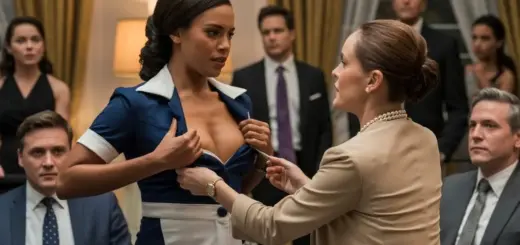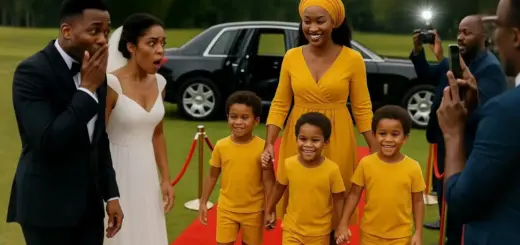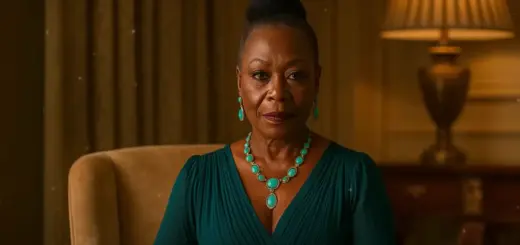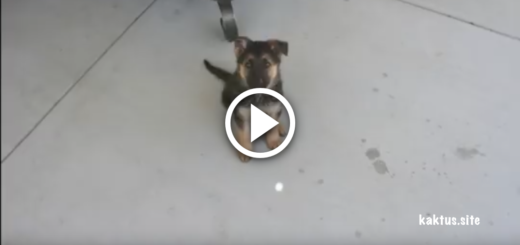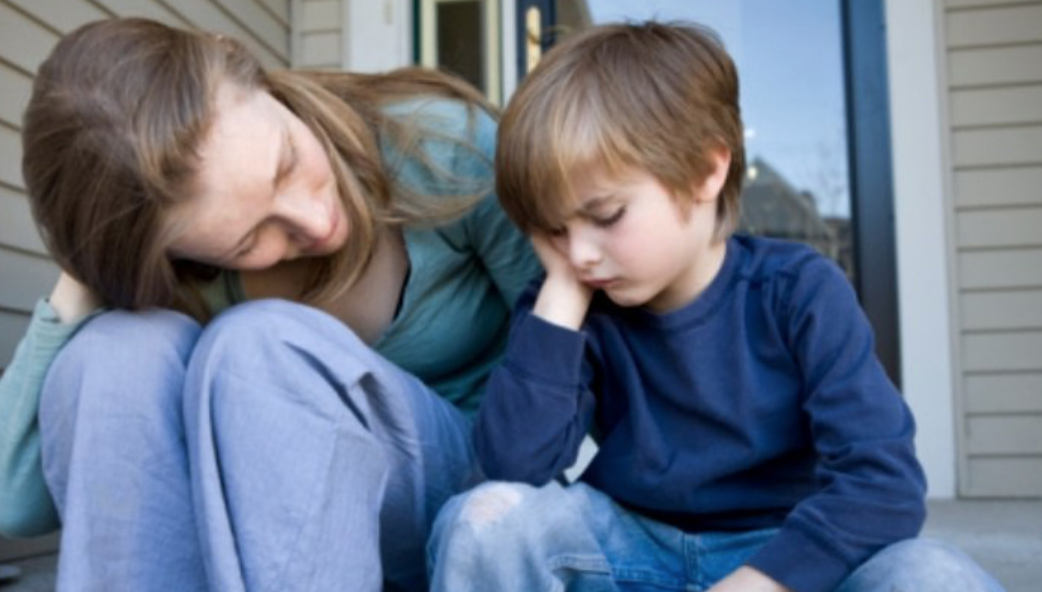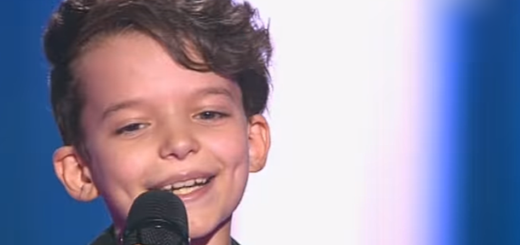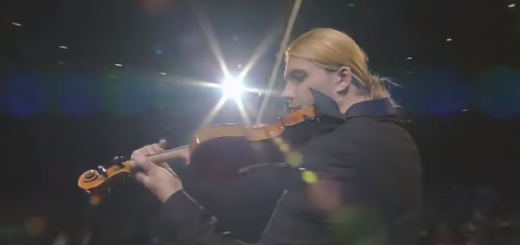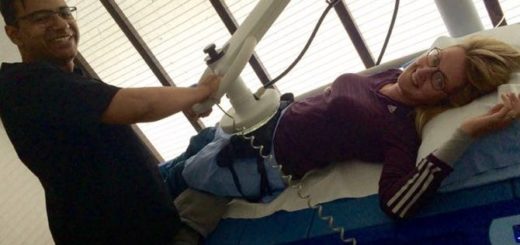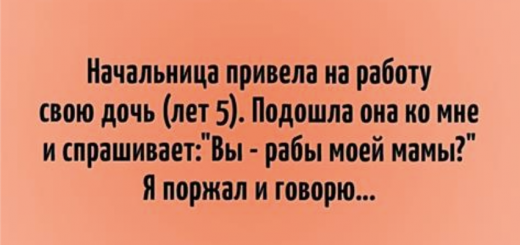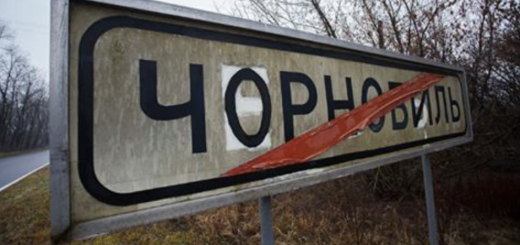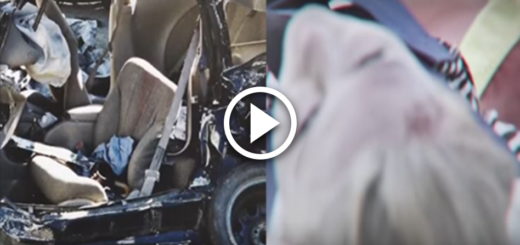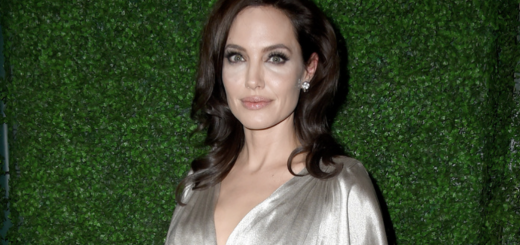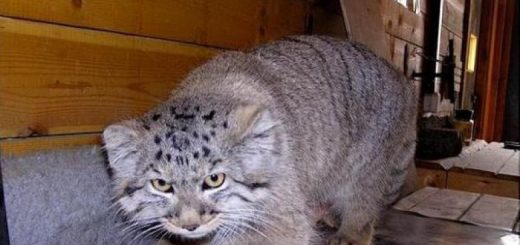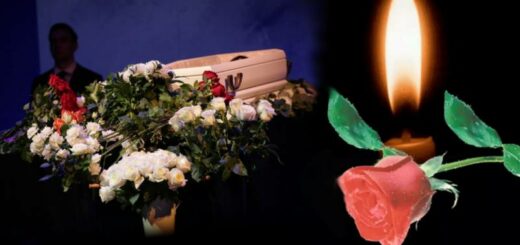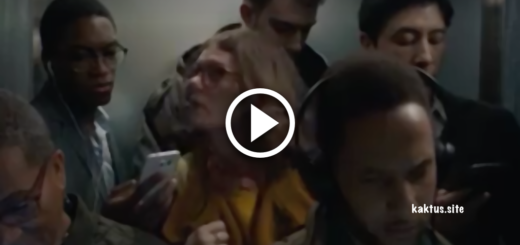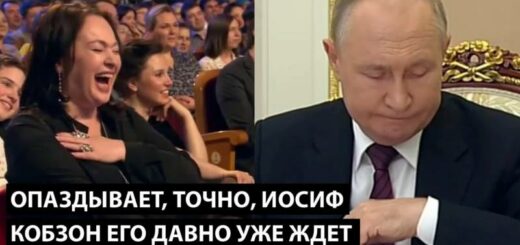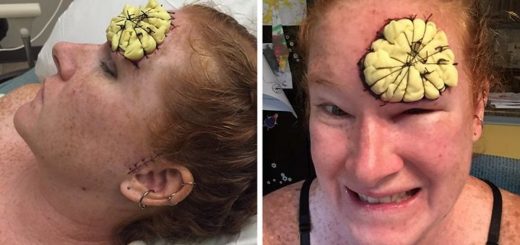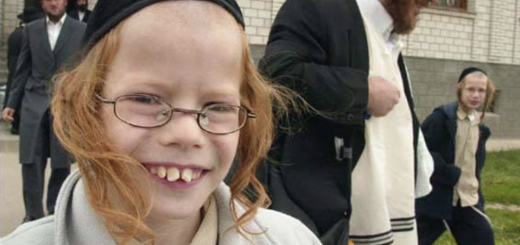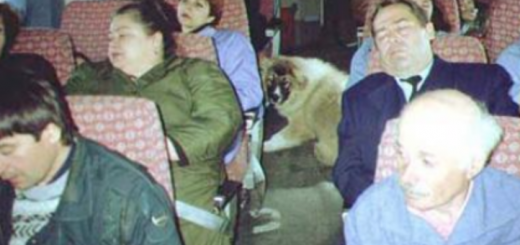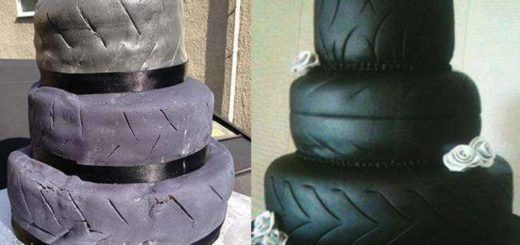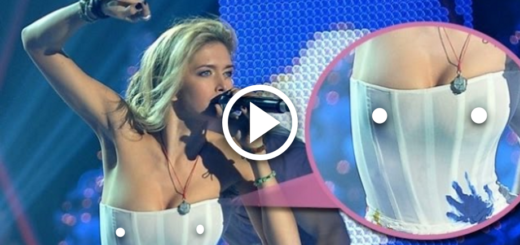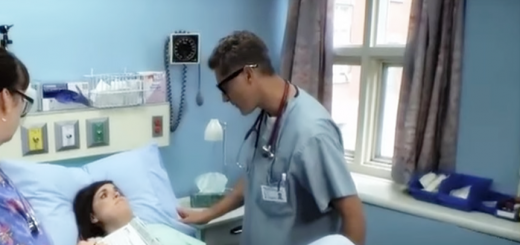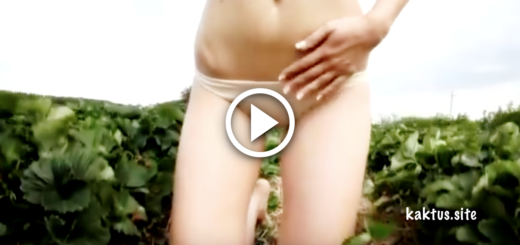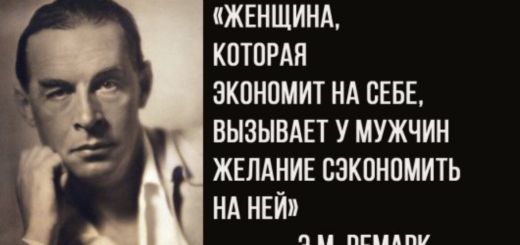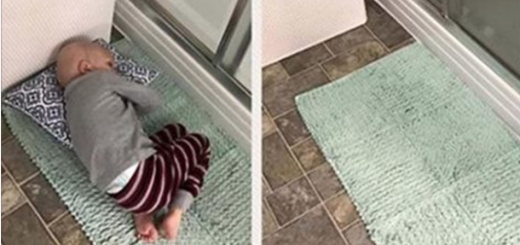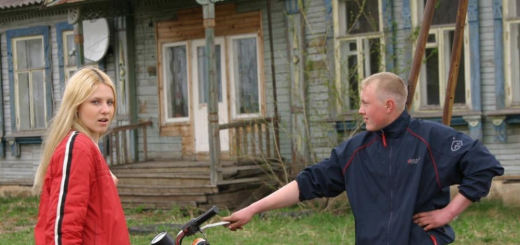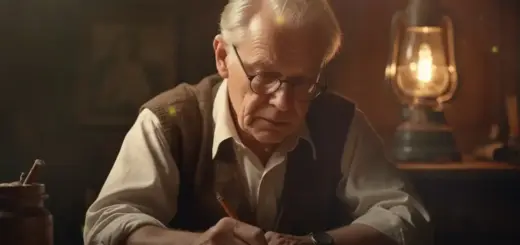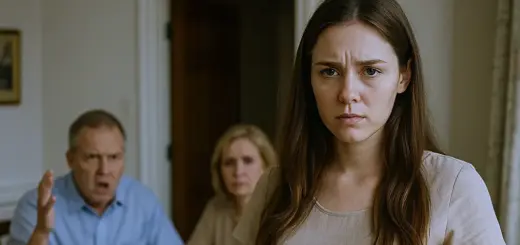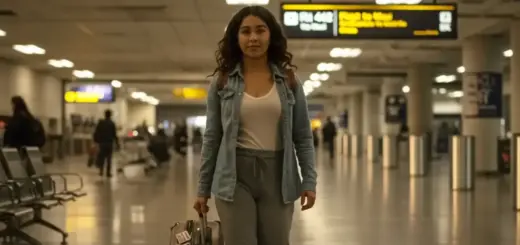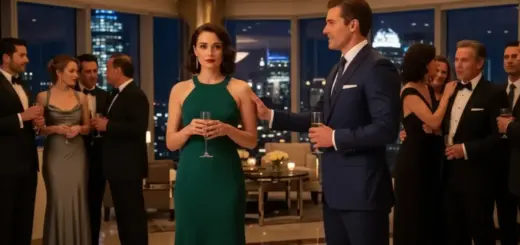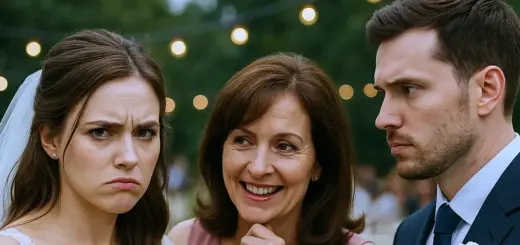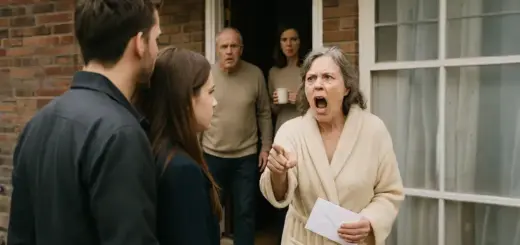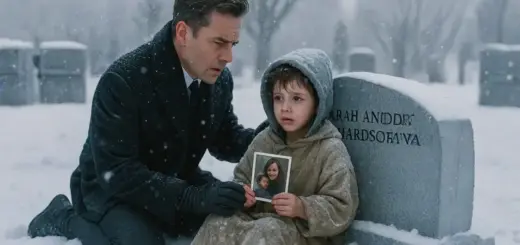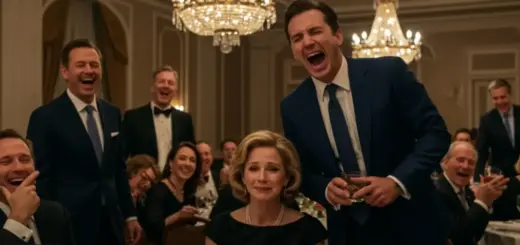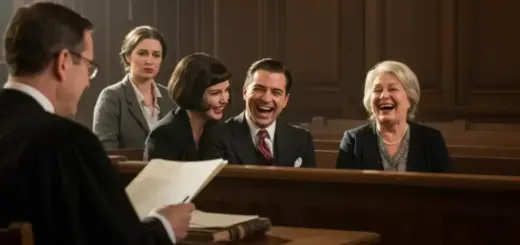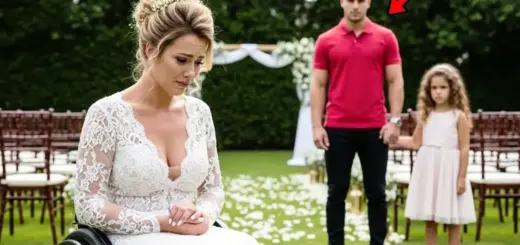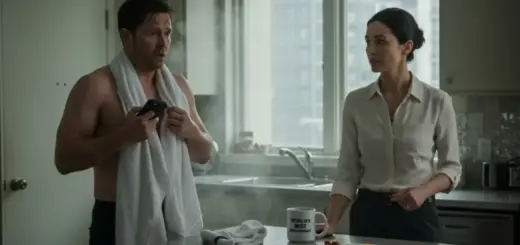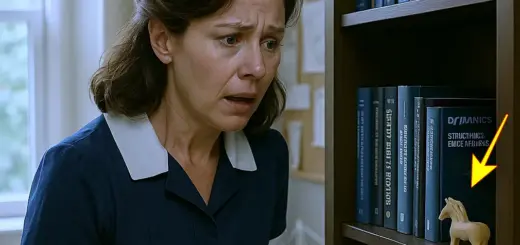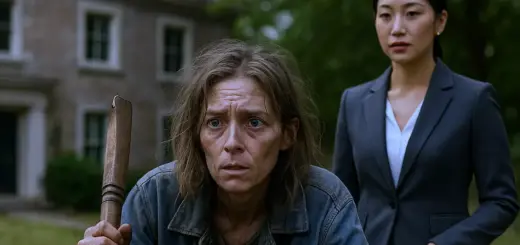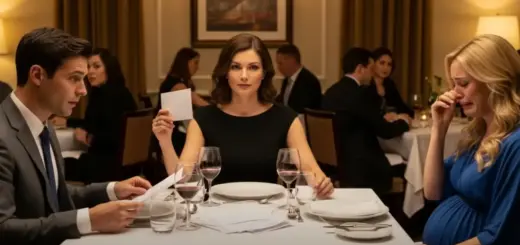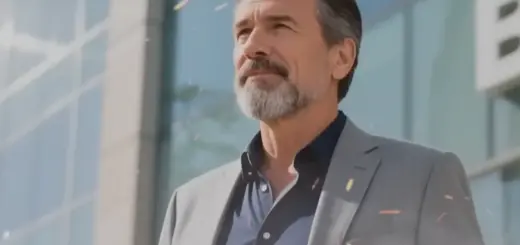When it was finally time to go, when Tessa’s parents emerged from the church, looking weary and worried, Malcolm stood up and brushed grass from his jeans. «I should let you go. But before I do, can I give you something?»
Tessa nodded. Malcolm pulled a small notepad from his pocket, scribbled something down, and handed her the paper. It was his phone number. «I’m not trying to be weird or inappropriate. And there’s no pressure. But if you ever need someone to talk to, someone who understands what it’s like to be abandoned by someone who should have stayed, I’m here. Even if it’s just to listen.»
Tessa took the paper, her fingers trembling slightly. «Why are you being so kind to me? You don’t know me.»
«Maybe that’s exactly why. Because sometimes strangers can offer something that people who know us can’t. Distance, objectivity, and the freedom to be honest without worrying about what they’ll think of you tomorrow.» He knelt down beside her wheelchair, not towering over her, but meeting her at eye level, quite literally. «Tessa, I don’t know what your life looks like from here. I don’t know how long it’ll take to heal from this. But I know you’re going to be okay. I don’t know how I know, but I do. And when you’re ready, whether that’s tomorrow or next month or next year, I hope you’ll reach out. Because I think you’re someone worth knowing.»
Tears streamed down Tessa’s face, but they weren’t the same tears as before. These were different, softer, mixed with something that felt almost like hope. «Thank you,» she whispered.
Autumn threw her arms around Tessa’s shoulders in an impulsive hug, nearly knocking the bouquet of petals from her lap. «Bye, Princess Tessa. I hope you feel better soon.»
Tessa hugged her back, this precious little girl who’d shown up and simply loved without conditions or hesitations. «Bye, Autumn. Thank you for my party.»
As Malcolm and Autumn walked away, hand in hand, Tessa sat there with the piece of paper in her hand. She looked down at it, at the phone number, at the name written above it in neat handwriting: Malcolm Foster. She didn’t know if she’d call. She didn’t know if she’d ever see him again. She didn’t know anything, except that for the first time since Tyler had walked out, she didn’t feel completely broken.
Her father approached, his face etched with concern and barely suppressed rage at Tyler. «Sweetheart, let’s get you home.»
Tessa nodded, folding the paper carefully and tucking it into the bodice of her wedding dress, right over her heart. As her father wheeled her toward the parking lot, she glanced back at the garden one more time, at the scattered rose petals, at the place where a stranger and his daughter had sat with her and refused to let her be alone. And she thought, maybe this isn’t the end. Maybe it’s just the beginning of something I didn’t see coming.
That evening, as Tessa sat in her apartment, finally out of the wedding dress, wearing comfortable clothes, her hair unpinned and loose around her shoulders, her phone buzzed. She picked it up, expecting another message from Naomi or her mother checking on her. Instead, it was an unknown number.
Hi, Tessa. It’s Malcolm. I just wanted to make sure you got home okay. No need to respond if you’re not up for it. Just wanted you to know someone is thinking of you.
Tessa stared at the message for a long moment. Her first instinct was to ignore it, to throw the phone across the room and crawl into bed and never come out. But something stopped her. The memory of Malcolm sitting in the grass, the sincerity in his eyes, the way he’d spoken to her not with pity but with respect, the way Autumn had called her a princess and meant it. Her fingers moved almost of their own accord.
I’m home. Thank you for today. For stopping. For staying. It meant more than you know.
She hit send before she could change her mind. Three minutes later, her phone buzzed again.
I’m glad. And I meant what I said. If you need someone to talk to, I’m here. No expectations. Just a friend who gets it.
A friend? When was the last time someone had offered her that without wanting something in return?
I might take you up on that, she typed. Fair warning, I’m kind of a mess right now.
Aren’t we all? came the reply. Get some rest, Tessa. Tomorrow is a new day.
She set her phone down and leaned back against the couch, exhausted but no longer drowning. The apartment was quiet. The wedding that should have happened was over, and yet somehow, impossibly, she felt the tiniest flicker of something in her chest. Not happiness. Not yet. But maybe. Just maybe. Hope.
The days that followed were brutal. Tessa had to return wedding gifts, field calls from concerned relatives who’d heard what happened, and deal with the pitying looks from neighbors who’d seen the decorations being loaded into the church that morning and put two and two together. Tyler sent one text: I’m sorry. I hope you understand. She didn’t respond. What was there to say? That she didn’t understand? That sorry wasn’t enough? That he’d destroyed her in a way she wasn’t sure she’d recover from? Instead, she deleted his number and blocked him on every platform.
But through it all, Malcolm texted. Not constantly. Not intrusively. Just there. How are you today? Saw a dog that looked like it had opinions. Made me think of your vet work. Autumn wants to know if you’re feeling better. She drew you a picture. Can I send it? Each message was a lifeline, a small reminder that someone out there saw her as more than the tragic wedding story. On the fifth day after the wedding that wasn’t, Tessa found herself actually looking forward to Malcolm’s texts.
They’d started talking more. Not about Tyler or the wedding, but about everything else. Books. Movies. The challenges of single parenthood. The frustrations of physical therapy. The small joys that still existed, even in dark times. Malcolm told her about Autumn’s latest school project, about how she’d insisted on making a get-well-soon card for someone she’d just met but already cared about. Tessa told him about her therapy sessions, about the anger she felt, about how some days she wanted to scream and other days she just wanted to disappear. And Malcolm never tried to fix it, never offered empty platitudes or toxic positivity. He just listened. And somehow, that was exactly what she needed.
Two weeks after the garden, Malcolm sent a message that was different from the others. Autumn has a school event on Friday. Nothing fancy. Just a little art show where the kids display their projects. She’s been working on a painting and she’s really proud of it. She asked if you’d want to come. No pressure at all, but I wanted to pass along the invitation.
Tessa stared at the message for a long time. Going out. Being around people. Facing the world after everything that had happened. It terrified her. But something about the invitation, the casualness of it, the fact that it wasn’t a grand gesture but a simple offer, made her want to say yes.
What time? she typed.
6 p.m. at the elementary school. Fair warning, there will be juice boxes and very enthusiastic children.
Tessa smiled, the first real smile she’d managed since the garden. I think I can handle that.
Friday evening arrived too quickly. Tessa spent an hour agonizing over what to wear, which was ridiculous because it was an elementary school art show, not a gala. But nothing felt right. Everything felt too formal or too casual, or too much like trying too hard. Finally, she settled on jeans and a comfortable sweater. Simple. Unpretentious. Real.
The school was buzzing with activity when she arrived. Parents milled around the hallway, admiring crayon drawings and clay sculptures displayed on tables. Children ran past, high on sugar and excitement. And there, near the back wall, was Malcolm. He spotted her immediately and smiled—warm, genuine, relieved that she’d actually come.
«You made it,» he said, walking over.
«I almost didn’t,» Tessa admitted. «But Autumn invited me. And I don’t break promises to six-year-olds.»
«Smart policy.»
Autumn appeared a moment later, her face lighting up like a firework. «Tessa, you came!» She threw her arms around Tessa without hesitation, and Tessa hugged her back, feeling something warm and healing in the embrace.
«I wouldn’t miss it,» Tessa said. «I heard you made a painting.»
«Come see! Come see!» Autumn grabbed Tessa’s hand and pulled her toward a small easel. The painting was abstract, swirls of color with bright sunbursts and what might have been flowers or possibly birds. In the corner, in careful child handwriting, was the title: When Bad Days End.
«It’s beautiful,» Tessa said softly. «Tell me about it.»
«Well,» Autumn began seriously, «the dark colors are the bad stuff, like when people are sad or scared or something hurts. But see the yellow and orange? That’s when the bad day is ending and good things start happening. Because Daddy always says bad days end. They always do.»
Tessa felt her throat tighten. «Your Daddy is very smart.»
«I know,» Autumn said proudly.
For the next hour, Tessa found herself swept up in the simple joy of the evening. Autumn introduced her to friends. Malcolm stayed close but not hovering, giving her space to breathe while making sure she never felt alone. When a few parents gave Tessa curious looks, noticing the wheelchair, maybe wondering who she was, Malcolm didn’t draw attention to it. He didn’t make a big deal. He just treated her like anyone else, which was, Tessa realized, all she’d ever wanted.
As the evening wound down and families started leaving, Malcolm walked Tessa to her car. «Thank you for coming,» he said. «Autumn hasn’t stopped talking about you since that day at the church.»
«She’s an amazing kid,» Tessa said. «You’re doing something very right.»
«I’m doing my best,» Malcolm said. «That’s all any of us can do.»
Tessa looked at him in the fading light of the parking lot, this man who’d appeared at the worst moment of her life and had quietly, consistently shown up ever since. «Can I ask you something?» she said suddenly.
«Anything.»
«Why? Why did you stop that day? Why did you stay? Why are you still here? Texting me and inviting me to art shows and being kind to someone you barely know.»
Malcolm was quiet for a moment, choosing his words carefully. «Because four years ago, when my wife left, I felt completely alone. Like I was drowning and everyone else was on the shore, watching but not helping. And I promised myself that if I ever saw someone drowning, I wouldn’t just watch. I’d reach out. Even if I was a stranger. Even if it was awkward or inconvenient. Because someone should have done that for me. And I can’t go back and fix my past, but I can show up for someone else’s present.»
Tessa felt tears gathering, but they weren’t sad tears. They were something else. Something softer. «You saved me that day,» she whispered. «You don’t think you did, but you did.»
«You saved yourself,» Malcolm said gently. «I just reminded you that you could.»
Over the following weeks, something shifted. What had started as kindness evolved into friendship. Malcolm and Tessa began meeting for coffee, just casual conversations where they talked about everything and nothing. Autumn often joined them, coloring at the table while the adults talked. Tessa shared more about her life before the accident: her love for animals, her dreams of opening her own clinic someday, and her fears that those dreams were over now. Malcolm listened and asked questions and never once suggested that her wheelchair made those dreams impossible.
«Adaptations,» he said simply when she expressed doubt. «Not limitations. You find new ways to do the things you love.»
One afternoon, Tessa invited Malcolm and Autumn to visit the Adaptive Animal Therapy Program where she’d started volunteering part-time. It was her first step back into the world she loved, and she was nervous about how it would go. Malcolm and Autumn showed up with a homemade sign that read, «We’re proud of you, Tessa!» She’d cried when she saw it—happy tears this time. Watching Malcolm interact with the therapy dogs, seeing how gentle he was with the animals and how patiently he helped Autumn learn proper handling techniques, Tessa felt something stir in her chest. Something she thought was dead after Tyler. Attraction. Interest. The flutter of possibility.
But she pushed it down. It was too soon. Too complicated. Malcolm was her friend, and she couldn’t risk losing that by wanting more.
Three months after the garden, Autumn had a seizure. It happened late at night. Malcolm called Tessa at two in the morning, his voice tight with barely controlled panic. «I’m sorry to call so late,» he said. «Autumn had a bad one. We’re at the hospital. She’s stable now, but… I just… I needed to hear a friendly voice.»
«I’m on my way,» Tessa said immediately.
«You don’t have to.»
«I’m on my way,» she repeated firmly.

